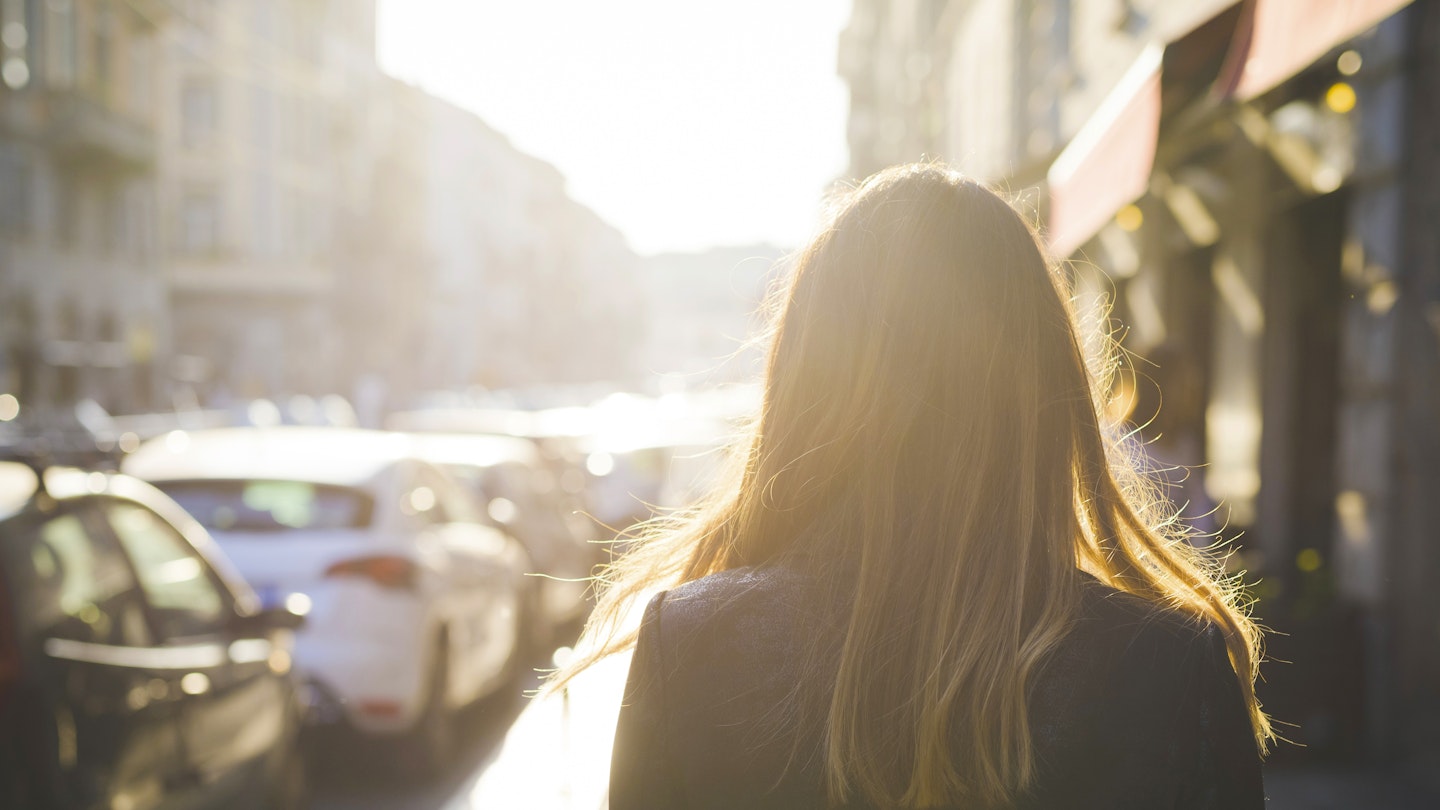The first time, I was 13. "Big tits!" shouted a sweaty-fringed spotty boy on the school playing field that paved my path home.
While I did absolutely, objectively have big tits – being a girl who had developed early, earlier than most of my friends – I'd never been that girl. As in that girl who any boy would look at and think, well, anything. I'd always been small and awkward, with thick NHS glasses and dirty, bloodied elbows and knees. I was just invisible.
But times they were a-changing, and I and the rest of the world were changing with them. Walking, shuffling across the grass that day, I felt embarrassed and upset in a way I couldn't quite process but, by god, also a little bit validated. They had seen me.

As I grew up, tumbled out of my teens and moved to London, it happened more and more. The validation dissolved to be replaced with nausea, irritation and fear. Shouts and calls of, "Smile, sweetheart," became "All right, sexy," and "Give me a kiss," and "Oi, slag!"
It could be day, it could be night, the comments could be relatively benign or moderately menacing, but regardless of what was coming my way, it was clear that there was only one response to send back their way: don't argue, don't respond.
"You're only asking for trouble," said a well-meaning friend. "Don't waste your breath, it's not worth it," said another.
When I tried to articulate my desire to defend myself from such unwelcome, demeaning shouts aimed at me, aimed at my body, I felt like I was being fighty and provocative. But I also felt, deep in my belly, a reality: that the streets – our streets – weren't safe, that as women we risked harm by kicking back.
Another time I was 22. I'd been travelling home from a party and, after an argument with my boyfriend, ended up alone down a poorly-lit street in Brixton, South London. It was after midnight and, wiping away frustrated tears at our row, which I could no longer remember the seed of, I walked down the street to and a bus stop.
A boy, maybe five years my junior, sat beside me in the bus shelter. "Give me a blow-job," he said. "What?!" I managed to splutter, utterly horrified. "Give me a blow-job," he reiterated, with a harder edge to his voice. "No fucking way," I managed, rising at once. "Then give me your handbag," he reasoned, grabbing for it.
We pulled – back and forth, back and forth – like we were tugging a Christmas cracker and, of course, he won. I was furious and humiliated, but the advice from others was unanimous: I should have let him have my bag without a fight.
Even though to me it was clear: the intention on the street that night was sexual harassment, not getting his hands on my battered bag containing reading glasses and a cheap lipstick. It was about power and a sense of entitlement and a sense of me as fair game.
I was, am, far from alone. Throughout my twenties and now into my thirties, my friends and I have shared stories of being harassed in the street by men old enough to be our dads, boys young enough to be our sons. Heckles from bicycles, hissing from cars, name-calling from six inches away on the street.
Sometimes we laugh when we tell these stories, sometimes we're angry, sometimes we're upset, but we pretty much always end up accepting and always, always tell each other to be careful. This is part-and-parcel, right? It doesn't really mean anything, does it? They're just words. There is barely a woman I know without her own story to share. But, recently, something in me started to, if not break, splinter.
We need to educate boys that they don’t have a right to girls – to heckle, mock, claim.
The last time it happened I was 37. It was just a few weeks ago and I'd been to a film screening – part of my job and daily routine as editor of a film magazine – and then to the pub for a quick pint with some pals before getting the tube and bus home.
Walking the short distance to my flat, I passed a lad in the street – this time, some 15-or-so years my junior – who said, "Hey, sexy," in my direction. I distinctly heard him because I had my right earbud out (playing Ian Brown into my shoulder) – a habit I no longer question but have had since I was a teenager, so I can hear anyone coming up behind me.
I ignored him, because that's what we do. "Fucking stuck-up bitch," he shouted after me as I stared hard at the pavement and hunched my shoulders.
As I marched home, I began to feel increasingly angry. Like, really angry. Was he expecting me to drop to my knees? First it was grass, now it is pavement – I am tired of looking down at what lies beneath my feet, ignoring, grimacing. This has been a stitch in the fabric of my reality for 24 years. When does it stop? When, once more, I become an age when I'm deemed invisible again?
There is absolutely a huge job to be done around education. Primarily to teach boys that they do not have a right to girls. To heckle, to mock, to embarrass, to claim.
But also to tell our girls that it's not normal to be nervous when walking past a group of boys, that this isn't behaviour that should be accepted. That the first boy who comments on her body, or insults her when she doesn't respond kindly, should also be nervous; nervous that she will turn around and tell him precisely, intelligently and loudly why he's bang out of order and that she won't risk harm for doing so. He may not really see her, but we do, and we're with her.
Read more:
#NoWomanEver: The Hashtag Exposing Everyday Street Harassment
